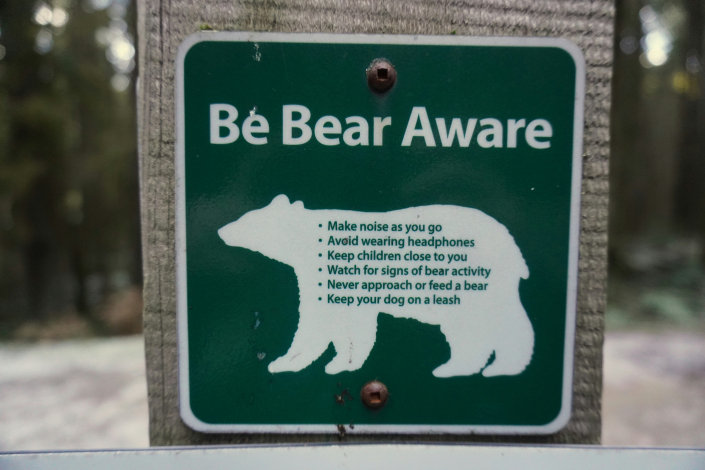
The Prince George Backcountry Recreation Society has forwarded the following communication regarding the recent incident involving an attack on two hikers by what is believed to have been a sow accompanied by her cubs in the Pass Lake area over the weekend:
The Farm Cabin and surrounding area is CLOSED as of this moment. There has been an incident with multiple bears and the area is currently not safe. The Conservation Officer Service will have a heavy presence in the area for the next few days. Do NOT use the Farm Cabin trailheads, or the trails, or cabin for the next seven days (Oct 13 - 20, 2025).
As a quick reminder, here are some guidelines to help you stay safe while enjoying the outdoors while in bear country.
Make Noise as You Go
When hiking or walking in bear country, it is important to make frequent noise to alert bears of your presence. Bear bells can be useful tools, but simply speaking loudly and singing are effective methods as well. This proactive approach helps prevent sudden encounters that could startle a bear and potentially trigger an attack.
Avoid Wearing Headphones
Using headphones while in bear country can severely impair your ability to hear warnings from bears or other hikers. It is crucial to remain aware of your surroundings at all times, and wearing headphones can significantly diminish your auditory senses, making it difficult to detect potential threats.
Keep Children Close to You
Children are naturally curious and may approach wildlife out of excitement, which poses a significant risk in bear country. Keeping children close and within arm's reach helps prevent them from inadvertently disturbing or alarming a bear. Educate children about bear safety and the importance of staying together as a group.
Watch for Signs of Bear Activity
Being vigilant and attentive to your environment is key in avoiding encounters with bears. Look for signs such as fresh tracks, scat, scratched trees, and overturned rocks — all indicators that bears are in the area. By recognizing these signs early, you can take necessary precautions or alter your route if needed.
Never Approach or Feed a Bear
Approaching wildlife, especially bears, is one of the most dangerous mistakes hikers can make. Bears are wild animals and may react aggressively to perceived threats. Similarly, feeding bears, either intentionally or unintentionally (e.g., leaving food unsecured), disrupts their natural behavior and diet, leading them to associate humans with food. This can result in increased bear-human conflicts.
Keep Your Dog on a Leash
In many regions where bears are present, dogs are required to be leashed at all times for the safety of both humans and wildlife. Unleashed dogs may chase or provoke bears, increasing the likelihood of an encounter that could escalate into an attack. A dog on a leash is also easier to control in case you need to retreat quickly.
Importance of Carrying Bear Spray
Carrying bear spray is highly recommended when hiking in areas where bears are known to reside. Bear spray is a non-lethal deterrent designed to repel aggressive or defensive bears. It creates a mist that can disorient and incapacitate a bear, giving you time to retreat safely. Ensure you know how to use the spray properly before your trip, as it must be deployed correctly in an emergency situation.
